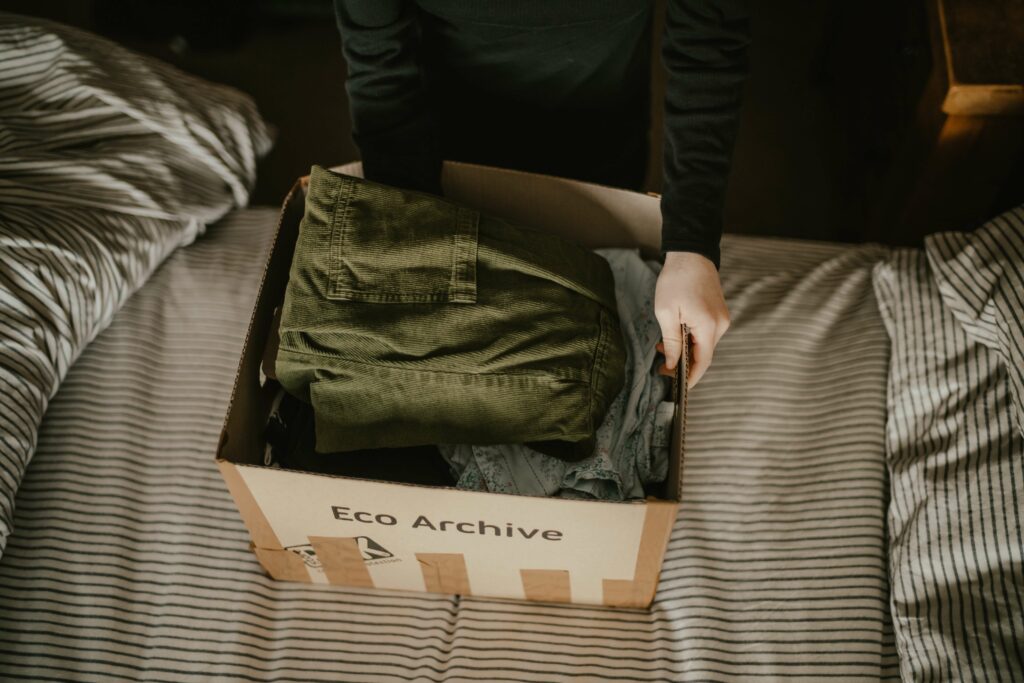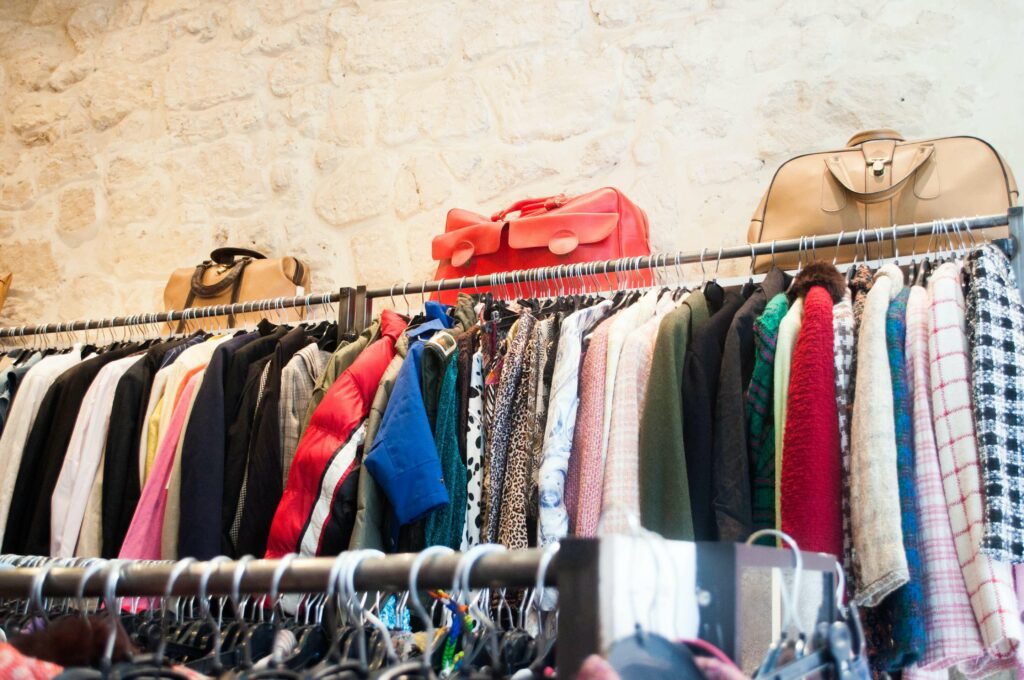Thrift stores like Goodwill have become synonymous with affordable fashion finds and a treasure trove of pre-loved garments. It’s also one of the best places to find reselling products. But amid the excitement of browsing racks of unique pieces, one question often arises: Does Goodwill wash clothes?
Goodwill Industries, a renowned nonprofit organization that operates thrift stores in the United States and various parts of the world, serves as a conduit for donated goods to be resold for the benefit of the community. But what happens to the clothes before they reach the racks? Are they cleaned and sanitized? How does Goodwill ensure the quality of the items it sells?
This guide provides a straightforward answer to these questions and uncovers the truth behind Goodwill’s laundry practices. Whether you are an avid thrifter or a curious shopper seeking clarity, we aim to comprehensively answer whether Goodwill washes clothes.
Does Goodwill wash clothes?
No, Goodwill does not wash every donated clothing item. The responsibility for cleaning the donated clothes primarily rests with the donor. When you donate clothes to Goodwill, they go through a sorting and inspection process, but washing or dry cleaning each individual item is not part of their standard procedure.
Due to logistical constraints and the sheer volume of donations received by Goodwill, it is impractical for them to clean each item individually. Therefore, it is essential for donors to take the time to inspect and wash the clothes they wish to donate before dropping them off. By doing so, donors help support Goodwill’s mission of improving lives through education, training, and employment opportunities.
Why Goodwill does not wash donated clothes?
One of the main reasons why Goodwill does not wash donated clothes is for efficiency and cost-effectiveness. Goodwill wants to keep their prices as low as possible. And washing large volumes of donated clothes can be time-consuming and expensive.
Goodwill, like other charitable organizations, often operates on limited budgets and relies on donations and volunteer efforts. Washing every item would require additional resources for water, detergent, electricity, and maintenance of laundry facilities, which may not be feasible.
Another reason why Goodwill does not wash the clothes they sell in their stores is resource constraints. Washing every donated item would require significant time and effort, which could be better allocated to other important tasks, such as sorting, pricing, and organizing donations.

Goodwill’s clothing donation process
While Goodwill strives to provide clean and presentable clothing to its customers, it’s important to remember that donated items come from various sources and conditions. The specific donation process may vary slightly depending on the location of the Goodwill store, however, here is a general overview of the Goodwill clothing donation process:
- Donation Drop-Off. Donors bring their clothing items to a designated Goodwill donation center or drop-off location. Some Goodwill stores also offer home pickup services for larger donations.
- Sorting and Inspection. Upon receiving the donations, Goodwill staff or volunteers sort through the items. They separate clothing from other donated goods and begin the inspection process.
- Quality Assessment. Each clothing item is examined to assess its condition, cleanliness, and resale potential. Items with visible stains, tears, or significant damage may be deemed unsuitable for sale.
- Categorization and Pricing. After inspection, clothes are categorized based on type, size, and quality. Pricing is determined based on factors such as brand, condition, and market demand.
- Display and Sale. Accepted clothing items are prepared for display in the Goodwill store. They may be organized by category (e.g., shirts, pants, dresses) or by size on racks or shelves.
- Donated Clothing Recycling. Clothing items that do not meet the quality standards for resale may be designated for recycling. Goodwill often partners with textile recycling companies to repurpose or recycle these items.
Best practices for shopping at Goodwill
Goodwill stores aim to provide a positive shopping experience, and efforts are made to ensure that clothes are clean and suitable for use. However, due to the nature of secondhand goods, it’s helpful to follow these best practices to make the most of your experience.
1. Inspect the items
Thoroughly examine the clothing items you’re interested in purchasing. Check for stains, tears, missing buttons, or any other damage that may affect the item’s condition or usability. Keep in mind that some minor flaws can be easily fixed, but it’s important to assess the overall quality before making a purchase.
2. Check for cleanliness
While Goodwill aims to provide clean clothing, it’s a good idea to wash any secondhand items before wearing them. Look for signs of cleanliness, such as the absence of strong odors or visible dirt. Washing the clothes ensures personal hygiene and eliminates potential allergens.
3. Consider fabric care requirements
Take note of the fabric content and care instructions on the clothing labels. Some fabrics may require special care or be more prone to shrinkage or damage in certain washing conditions. Make sure you’re comfortable with the care requirements of the item you intend to buy.
4. Shop with a purpose
Thrift stores like Goodwill offer a wide range of clothing options. Before shopping, identify the specific items or styles you’re looking for. This can help you navigate through the store more efficiently and avoid impulsive purchases.
5. Donate and recycle
If you have gently used clothing items that you no longer need, consider donating them to Goodwill. This helps support their mission and provides others with the opportunity to find affordable clothing. Additionally, Goodwill often partners with textile recycling companies to repurpose or recycle donated items that are unsuitable for resale.

Shopping at Goodwill: Frequently Asked Questions
Goodwill has long been a go-to destination for savvy shoppers looking for affordable and unique clothing options. Goodwill stores offer a wide range of secondhand items while making a positive impact on local communities. If you’re new to shopping at Goodwill or simply want to learn more about the experience, here are some of the most frequently asked questions to help you navigate your next thrift store adventure.
Can I donate dirty or unwashed clothes to Goodwill?
Goodwill encourages donors to provide clean and gently used clothing. Donated clothes that are excessively soiled, damaged, or have strong odors may be deemed unsuitable for resale.
What should I do if I have concerns about the cleanliness of a clothing item at Goodwill?
If you have concerns about the cleanliness of a specific clothing item purchased from Goodwill, it’s recommended to wash it before wearing it. If you have further questions or specific concerns, you can reach out to the store staff or management for clarification.
What does Goodwill spray their clothes with?
One common method that Goodwill uses is to spray clothes with a fabric freshener or odor-neutralizing spray. These sprays are typically used to eliminate any unpleasant odors that may be present on donated clothes. They can help freshen up the items before they are put out for sale. The exact brand or type of spray used may vary depending on the location and available resources.
Can I find brand-name clothing at Goodwill?
Yes, it is possible to find brand-name clothing at Goodwill stores. Goodwill receives a variety of donated items, including clothing from different brands. While the availability and selection of brand-name clothing may vary, many people have found well-known brands and designer items at affordable prices in Goodwill stores.
Does Goodwill sell accessories like shoes, bags, and jewelry?
If you want to start a sneaker reselling business, you can find pre-owned shoes in various sizes and styles, including casual, athletic, and formal footwear. Bags such as handbags, backpacks, and tote bags are also commonly available. Additionally, Goodwill often has a selection of jewelry, including necklaces, bracelets, earrings, and rings.
Does Goodwill offer online shopping or shipping services?
While Goodwill has made efforts to embrace online shopping, the availability of online shopping and shipping services may vary by location. Goodwill has more than 3,300 stores in the United States and Canada but you can also shop online at shopgoodwill.com and GoodwillFinds.com.
Conclusion
Whether you’re searching for brand-name clothing, unique vintage pieces, or simply looking for budget-friendly options, shopping at Goodwill can be a rewarding experience. By understanding Goodwill’s clothing donation process and the steps they take to ensure quality and cleanliness, you can make informed decisions when shopping and contribute to their mission of community support. Remember, while Goodwill plays its part in presenting clothing in the best condition possible, it is always recommended to wash any secondhand clothing items before use, ensuring your personal satisfaction and comfort.
If you want to start reselling as a sidejob, shopping at Goodwill is a good start. By sourcing items at low prices and reselling them at higher prices, you can earn a profit. Goodwill stores often offer opportunities to find undervalued or underpriced items that you can acquire and sell for a higher value. The key is to identify items with high demand and low supply, allowing you to capitalize on the price difference. Here’s a complete guide on how reselling works for beginners.

